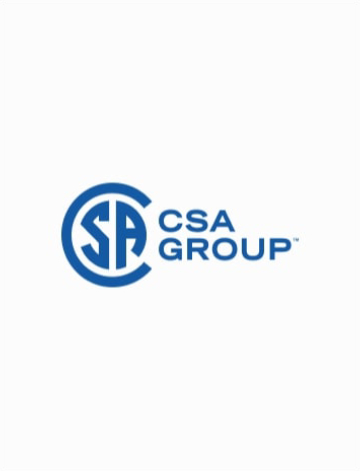Preface
This is the fifth edition of CSA C22.2 No. 139, Electrically operated valves. It supersedes the previous editions, published in 2013, 2010, 1982, and 1973.
This Standard is one of a series of Standards issued by CSA Group under Part II of the Canadian Electrical Code.
The following are the major changes to this edition:
a) Scope expanded to include electro-hydraulic actuators.
b) Spacing requirements for printed circuit boards rated for use above 300 V to 600 V have been added.
c) Construction requirements for electro-hydraulic actuators have been added.
d) Endurance cycle requirements added for damper actuator category.
e) Repositioning range for modulating valves for hazardous fluids added.
f) Endurance cycles for hydraulic control valves clarified.
g) Cycle and reposition requirements for modulating general purpose valve/actuators used in specific end applications clarified.
Permission to use extracts from ISO/TR 10771-2:2008 was provided by Standards Council of Canada (SCC) on behalf of ISO. No further reproduction is permitted without prior written approval from Standards Council of Canada.
This Standard is considered suitable for use for conformity assessment within the stated scope of the Standard.
This Standard was prepared by the Subcommittee on Electrically Operated Valves, under the jurisdiction of the Technical Committee on Industrial Products and the Strategic Steering Committee on Requirements for Electrical Safety, and has been formally approved by the Technical Committee.
Scope
1.1
This Standard applies to electrically operated, general-purpose valves* and safety valves* that are intended to be used in ordinary locations in accordance with CSA C22.1, Canadian Electrical Code, Part I, for the control of fluids (e.g., air, gases, oils, refrigerants, steam, water, etc.), and rated 600 V and less.
* For convenience, the shorter term valve is used where the same requirements apply to both general-purpose and safety valves.
1.2
This Standard applies to electrically powered mechanisms that are designed to provide the signals needed for monitoring valve operation from a remote location and to electrically powered valve actuators* that are designed to be fitted to valves.
* For convenience, the term valve includes valve actuator unless
otherwise stated.
1.3
This Standard applies to self-contained electro-hydraulic* actuators, both linear and rotary type.
* These types of actuators are electrically operated and use hydraulic fluid as a driving medium. They can be operated in conjunction with a remote signal.
1.4
This Standard contains requirements for electrical features of valves and requirements for mechanical features of valves that affect their safe operation.
1.5
With respect to construction and tests of electrical features, the requirements of this Standard complement those of ANSI Z21.21/CSA 6.5.
1.6
Electrically operated damper actuators are evaluated to the requirements of CSA C22.2 No. 24.
1.7
This Standard does not contain requirements for mechanical and operational features that do not directly affect the safe operation of a valve.
1.8
This Standard does not apply to water valves of connection size larger than 2-inch pipe size or pressure rating above 1600 kPa (232 psi) for valve bodies of thermoplastic material.
1.9
The values given in SI units are the units of record for the purposes of this Standard. Where the values are given in parentheses, they are for information and comparison only.
1.10
In this Standard, shall is used to express a requirement, i.e., a provision that the user is obliged to satisfy in order to comply with the Standard; should is used to express a recommendation or that which is advised but not required; and may is used to express an option or that which is permissible within the limits of the Standard.
Notes accompanying clauses do not include requirements or alternative requirements; the purpose of a note accompanying a clause is to separate from the text explanatory or informative material.
Notes to tables and figures are considered part of the table or figure and may be written as requirements.
Annexes are designated normative (mandatory) or informative (non-mandatory) to define their application.


